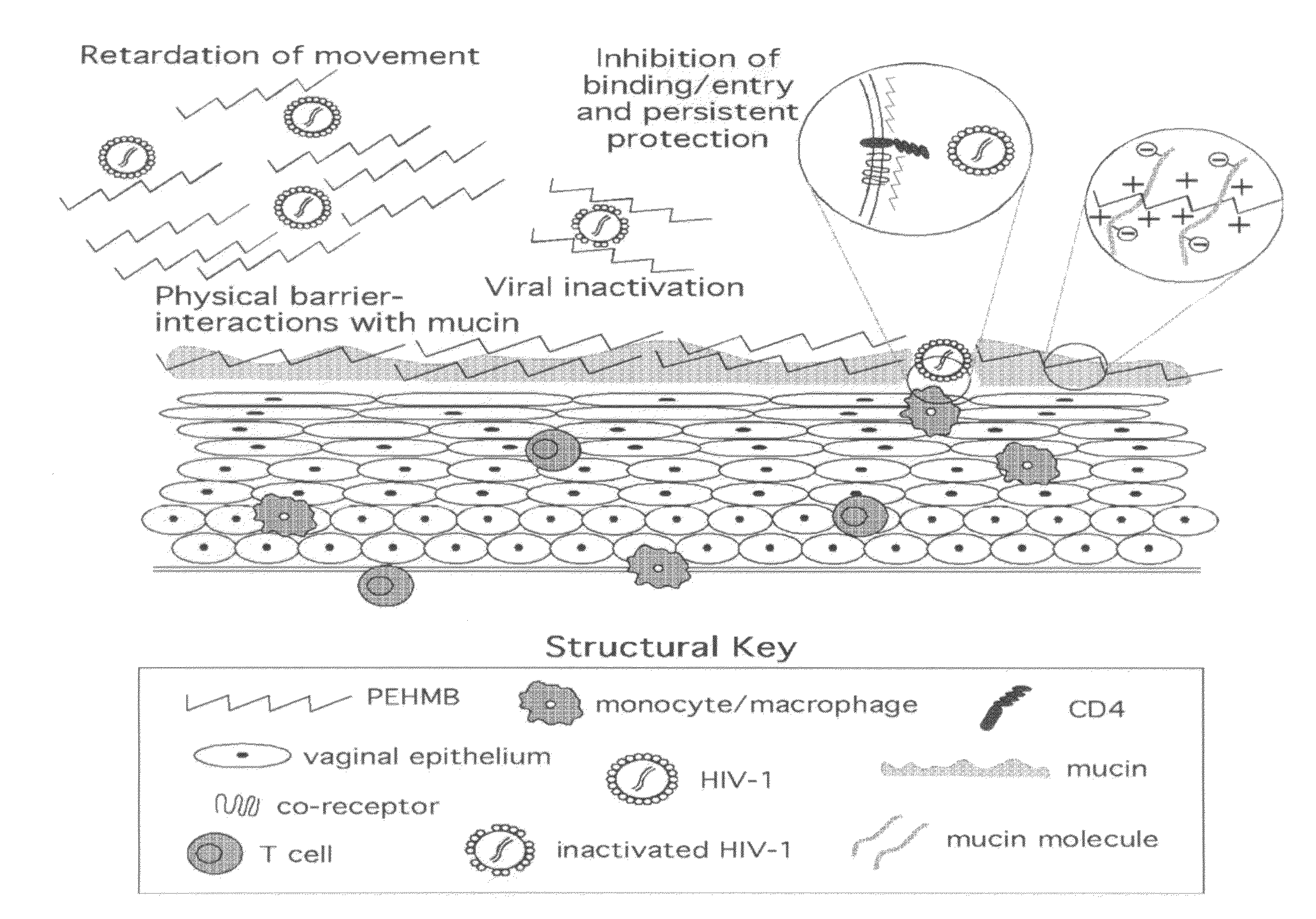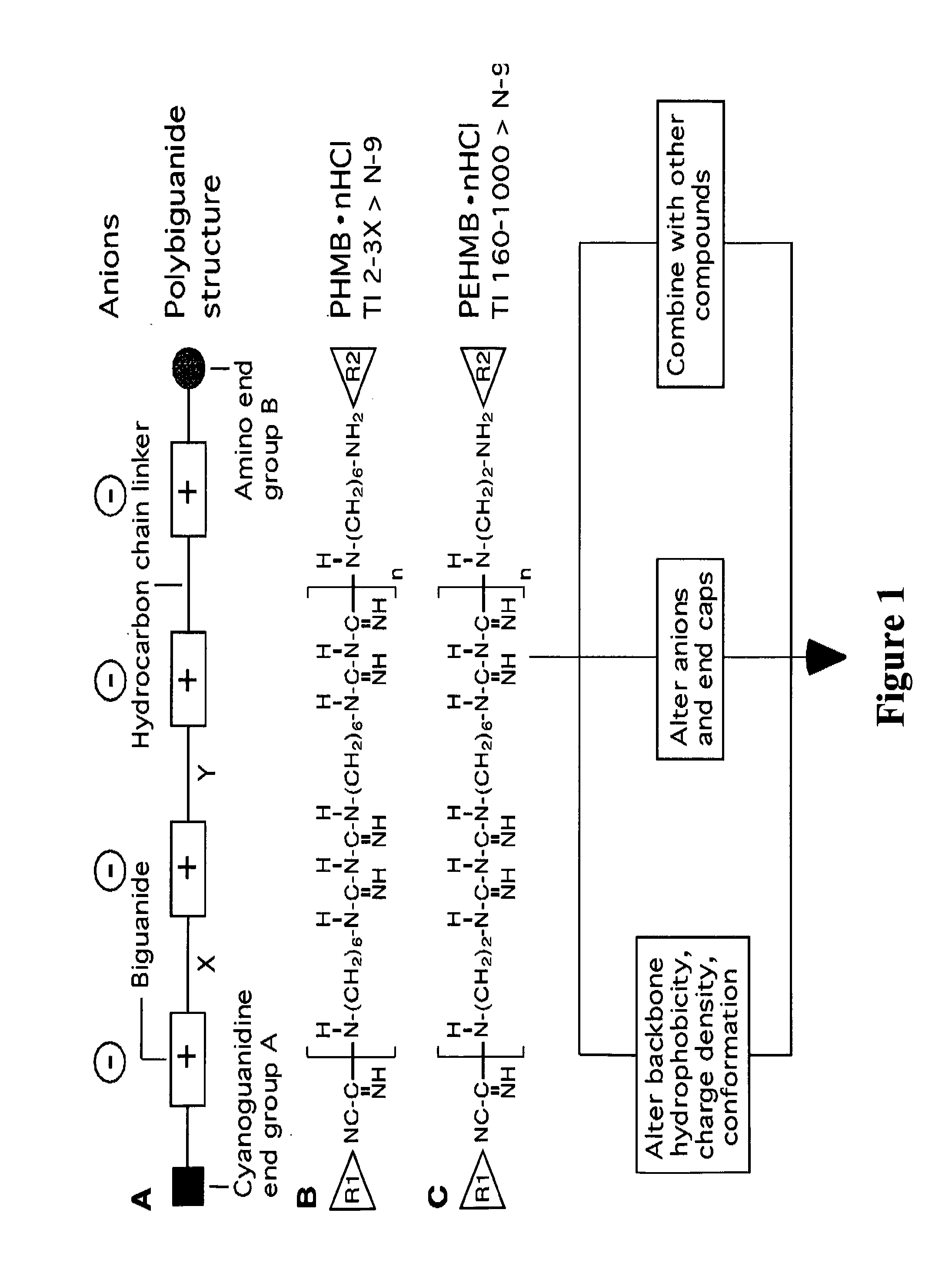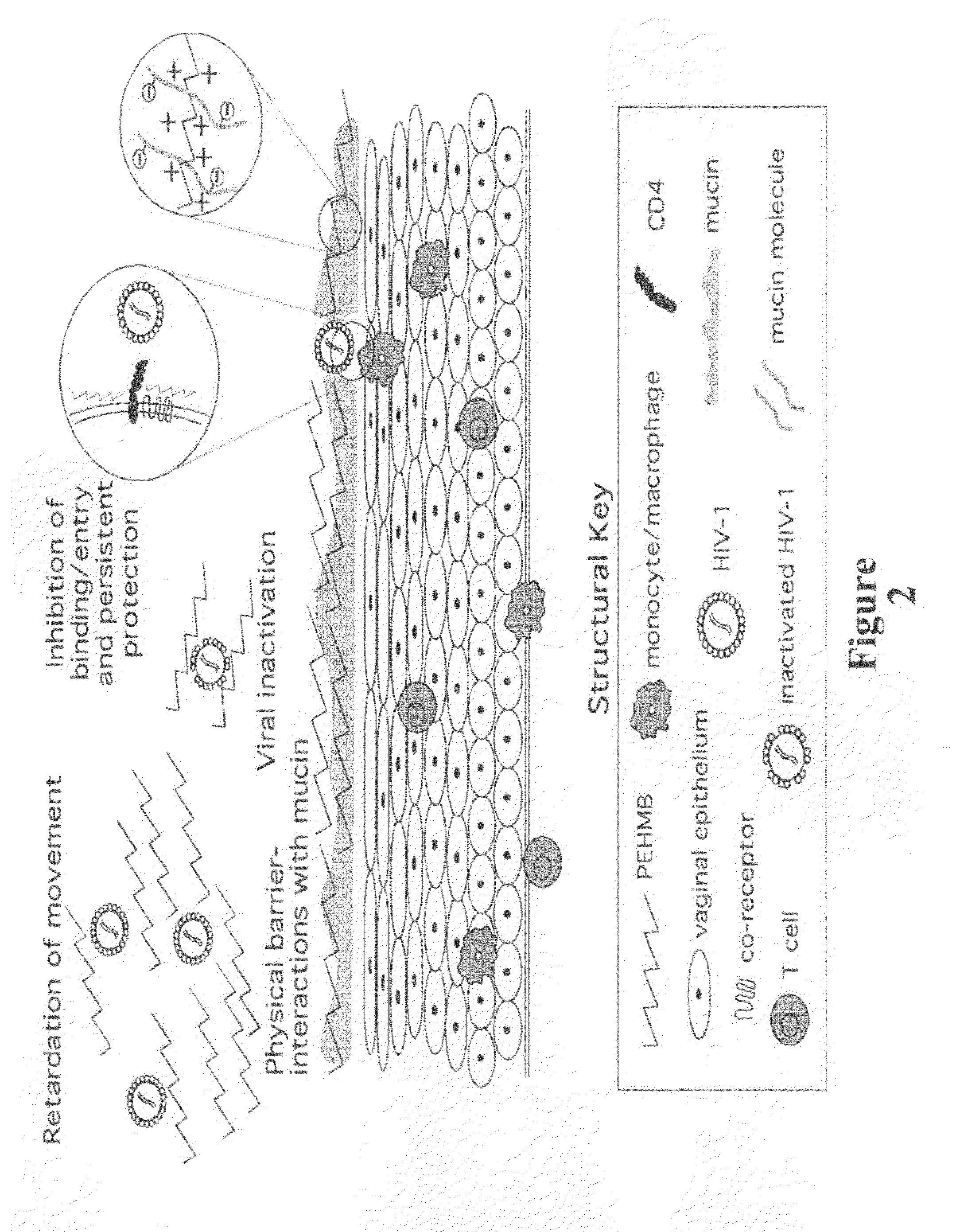Method for the treatment or prevention of virus infection using polybiguanide-based compounds
a technology of polybiguanide and compound, which is applied in the direction of phosphorous compound active ingredients, blood/immune system cells, tissue culture, etc., can solve the problems of ineffective existing therapies, catastrophic, and fatal disease that presently infects millions of people worldwide, and achieves the effects of reducing the number of patients, improving the treatment effect, and improving the quality of li
- Summary
- Abstract
- Description
- Claims
- Application Information
AI Technical Summary
Benefits of technology
Problems solved by technology
Method used
Image
Examples
example 1
Synthesis of Biguanide Compounds
[0133]The PBGs of this invention are readily prepared by reacting biscyanoguanides with diamino compounds in the presence of sufficient protic acids to form the polymer carried out in the neat or by using suitable solvent. The end group modifications (mono or di types) can be accomplished either by a post reaction after the initial polymer is formed, or simultaneously during the formation of the polybiguanide. All these syntheses are described in British patents numbered 1,167,249; and 1,531,717; and U.S. Pat. Nos. 4,891,423; 5,741,886; and patent application publication 2003 / 0032768 A1. The synthesis of mono end-capped PBGs is readily described in U.S. Pat. No. 5,741,886 while that of di-end capped PBGs is described in US 2003 / 0032768 A1.
[0134]The present invention provides compounds of formula (I):
[0135]The first line of the equation describes the synthesis of the biscyanoguanidine reactant, while the second shows the reaction of the diamino compoun...
example 2
Cytotoxicity Analysis of Polybiguanide Compounds
[0144]A. Monomeric Biguanides and bis-Biguanides.
[0145]HeLa cells (ATCC designation CCL-2) were maintained in Dulbecco's Modified Eagle's medium (DMEM). P4-CCR5 (P4R5 cells) (AIDS Reagent Program #3580) were cultured in DMEM with 0.1 ug / ml puromycin as described by Charneau et al. (1994 J. Mol. Biol. 241:651-652). Sup-T1 human T lymphocytes (ATCC designation CRL-1942) were cultured in RPMI 1640. All three cell types were cultured in media supplemented with 10% fetal bovine serum (FBS), L-glutamate (0.3 mg / ml), antibiotics (penicillin, streptomycin, and kanamycin at 0.04 mg / ml each), and 0.05% sodium bicarbonate. Cells of the Vk2 / E6E7 human vaginal karatinocyte cell line were cultured as described by Fichorova et al. (1997 Biol. Reprod. 57:847-855).
[0146]As part of our initial efforts to design and test PBG-based compounds optimized for cytotoxicity and anti-HIV-1 activity, experiments were performed with small molecules that contain th...
example 3
Efficacy Analysis of Polybiguanide Compounds
[0158]Antiviral assays include a viral binding / entry assay in which reporter cells such as P4R5 are incubated with virus in the presence of compound for two hours at which time the drug is washed off and the cells incubated for 48 hrs before measuring the intracellular production of β-galactosidase (Ojwang et al. 1995 Antimicrobial Agents and Chemotherapy 39:2426-2435). In cell-associated virus inhibition (CAI) assays, HIV-1111B infected SUP T1 cells are pelleted to remove cell free virus and incubated with each compound for ten minutes at 37° C. before a 1:10 dilution in media and incubation with P4R5 indicator cells for 48 hours before measuring β-galactosidase activity. In cell-free virus assays HIV-1IIIB or BaL were incubated with each compound for 10 minutes at 37° C. before a 1:100 dilution in RPM! 1640, and incubated for 2 hours with P4R5 cells, and subsequent assays for viral infectivity were performed 48 hours later using the β-ga...
PUM
 Login to View More
Login to View More Abstract
Description
Claims
Application Information
 Login to View More
Login to View More - R&D
- Intellectual Property
- Life Sciences
- Materials
- Tech Scout
- Unparalleled Data Quality
- Higher Quality Content
- 60% Fewer Hallucinations
Browse by: Latest US Patents, China's latest patents, Technical Efficacy Thesaurus, Application Domain, Technology Topic, Popular Technical Reports.
© 2025 PatSnap. All rights reserved.Legal|Privacy policy|Modern Slavery Act Transparency Statement|Sitemap|About US| Contact US: help@patsnap.com



